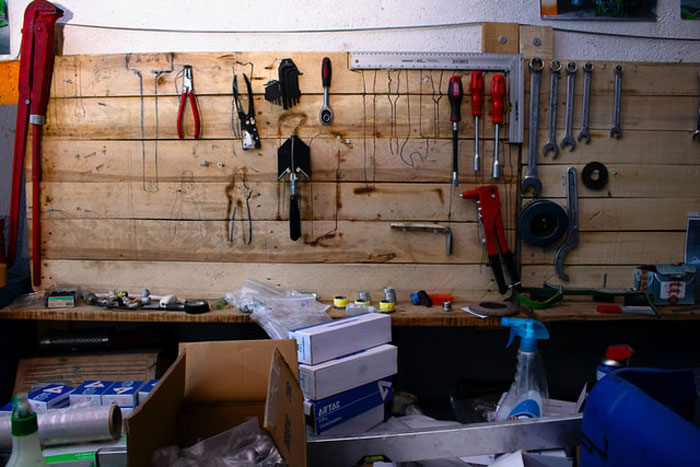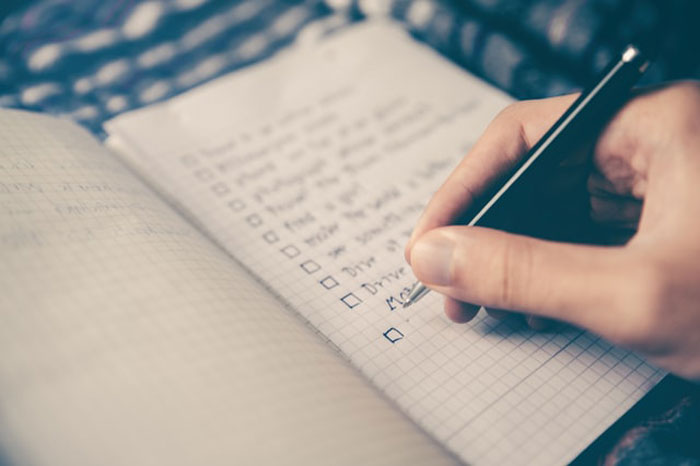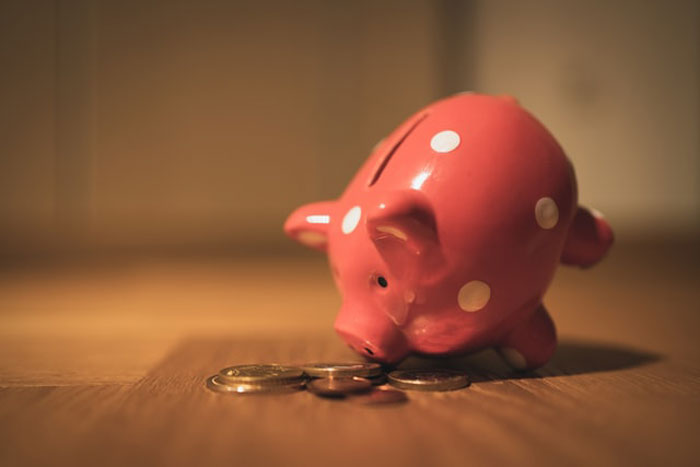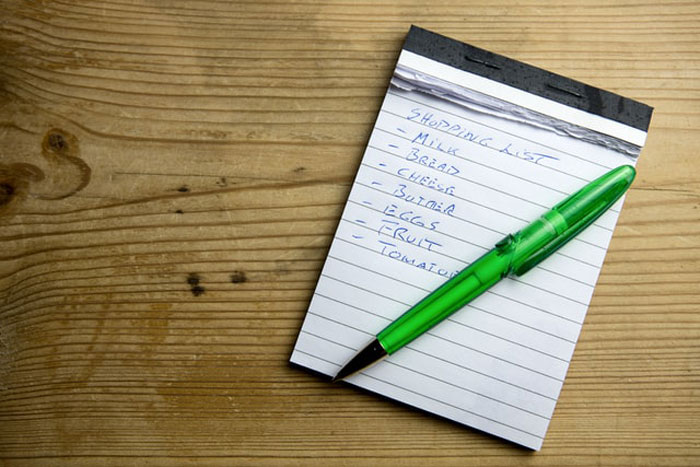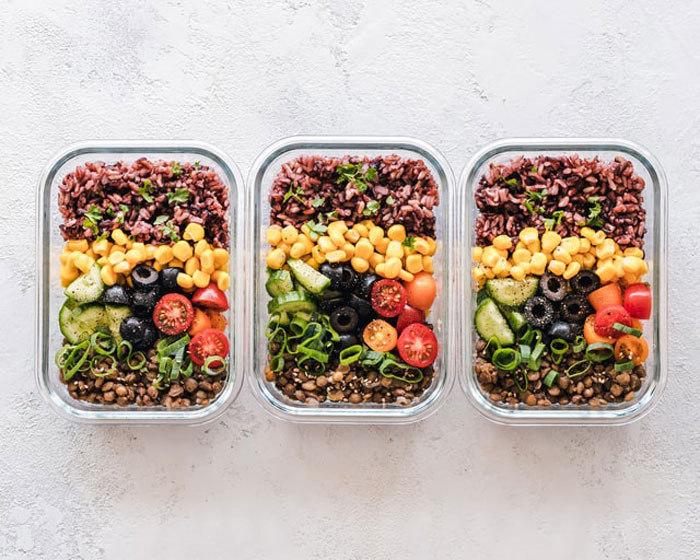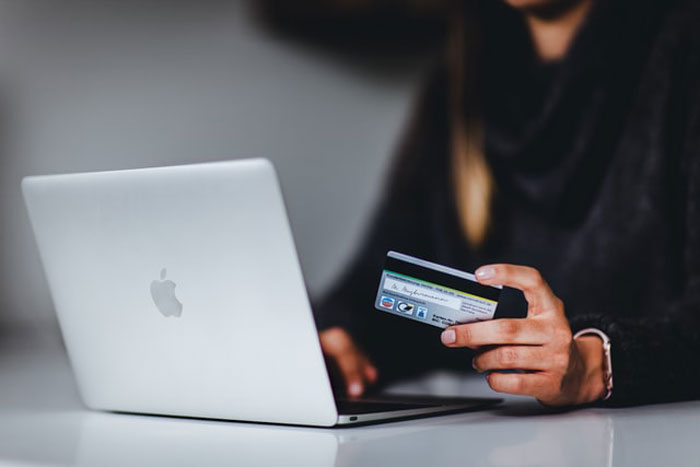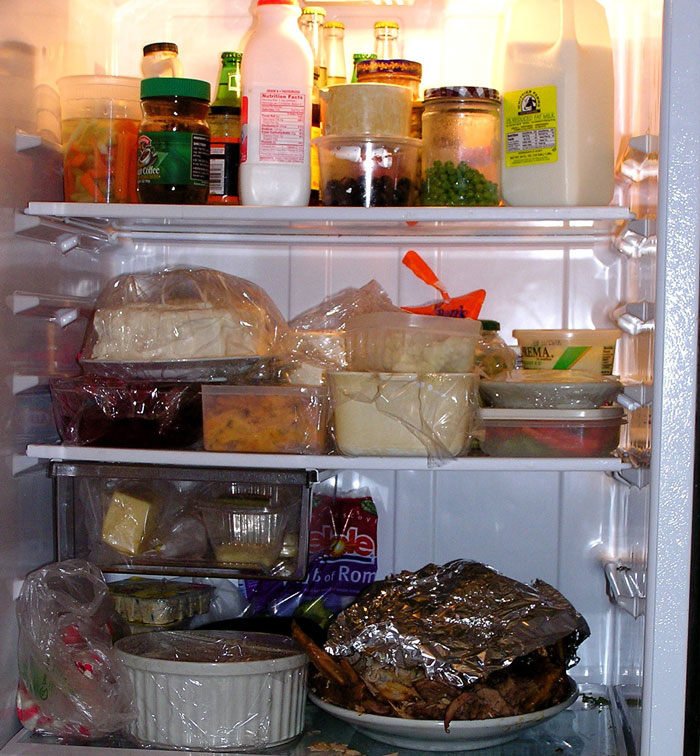Are you interested in getting more bang for your buck? Have you been wanting to save money and stretch your resources but just haven’t known where to start? Have we got the article for you! Okay, okay, I promise this list is not a cheesy infomercial in disguise. But it might actually teach you a thing or two about how to be more thrifty. We found two threads on the Frugal Living subreddit of users asking for "frugal life hacks" and frugal advice for families, so we've gathered the best responses from those threads for you to read down below, as well as an interview with Jen Smith, co-host of the Frugal Friends podcast, to gain some insight from an expert. There is absolutely no shame in going the extra mile to stretch your dollar (or euro or yen or pound etc.), so enjoy this list of useful tips and be sure to upvote the ones you find most relevant.
And if you’re finding yourself extra inspired after reading this post, check out Bored Panda’s last piece featuring frugal living tips right here.
This post may include affiliate links.
 Learn to love drinking water. After I quit drinking soda/energy drinks and switched to water, I lost 30lbs and reversed pre diabetes. I feel way healthier and don't even crave sugary drinks. Plus, I won't be spending anything on diabetes related health care.
Learn to love drinking water. After I quit drinking soda/energy drinks and switched to water, I lost 30lbs and reversed pre diabetes. I feel way healthier and don't even crave sugary drinks. Plus, I won't be spending anything on diabetes related health care.
We reached out to Jen Smith, co-host of the Frugal Friends podcast, to hear why it's important to live a frugal lifestyle. She told us, "I found a direct correlation to the more I embraced frugality, the less I stressed about money. When I talk to people about money they either feel like they need to get their finances together or they're intentionally ignoring it because it's gotten so bad. It's rare that I meet someone (outside of the personal finance media space) who's confident about their financial life. Everyone deserves a life free from financial stress. And while earning more money is an integral part of financial security it takes time and effort to build. You can adopt frugality overnight!"
We also asked Jen if she's ever done or seen anything done in the name of frugality that may have been taking it a little too far. "Oh, where do I start!?" Jen told us the first story that always comes to mind is when she met her husband he had just moved out of a mobile home where he was renting a room from a woman and sleeping on a futon chair. "He had a full-time job, he was just trying to save money on housing, and the mobile home park was right next to his school and job. There are far better ways to save on housing though. Jill and her husband Eric bought an RV that was newer and running great but renovated it look like an actual home you'd want to live in. They lived in the RV for a while with minimal rent costs then sold it for a profit."
Lastly, we asked Jen what she would like to say to people who have a negative connotation with the word frugal. "People equate frugality with deprivation but the reality is, if you don't define what 'enough' is for you, you'll never have enough. And the quest for 'enough' leads us down a never-ending path of consumption. Whether it's spending more, eating more, doing more, or having more, we consume to fulfill our needs but it's easy to over consume when you're not conscious of when your needs or desires are met. Frugality is simply deciding when your needs and desires are met. It's knowing what you value and want to spend money on as well as the things you desire that money can't buy. And the beautiful thing is nobody gets to decide that for you, you get to choose. Frugality allows you to live the life you want and not the one advertising and social media are selling to you."
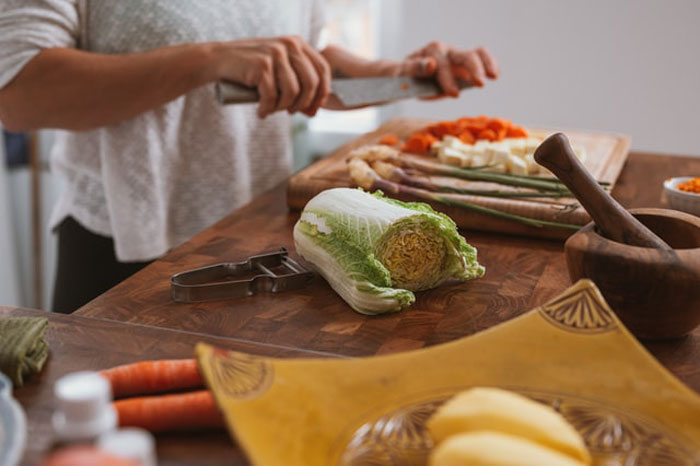 Learn how to cook real food that doesn’t come from a box or can. Eat out or take out very rarely. Maintain everything you own.
Learn how to cook real food that doesn’t come from a box or can. Eat out or take out very rarely. Maintain everything you own.
Being frugal has often been perceived as a bit of a niche interest. Despite the fact that everyone loves saving money, the consumerist society we live in today pushes a need for the “newest, greatest thing” and encourages excessive spending and retail therapy. We all know, even if it’s deep down, that material items and displays of wealth won’t bring us any more happiness, so it’s much better to focus our energy on frugal living to minimize financial stress and take better care of our planet.
The Frugal Living subreddit has been around since 2008, and currently has 2.2 million members. It explains frugality as “the mental approach we each take when considering our resource allocations” and “includes time, money, convenience, and many other factors”. Common topics on the page are electronics, pets, budget, recycling and zero waste, food shopping, appliances, auto, cooking and cleaning and organizing.
According to a 2021 survey by Personal Capital, frugality might be becoming more mainstream among Americans. 90.4% of respondents believe they have frugal spending habits, with many of them claiming to be cutting back on entertainment, dining out and traveling. The most common reasons cited for trying to be more economical were saving for future investments, having a lack of savings and needing a rainy day fund for unexpected costs. Although the majority of respondents say they have no problem sticking to their budgets, 36% of them admitted that they find themselves “fighting the urge to splurge either all the time or often”. The pandemic has also increased many of their financial fears, with 64% of them feeling anxious about another potential lockdown or economic shutdown to help maintain the spread of Covid-19.
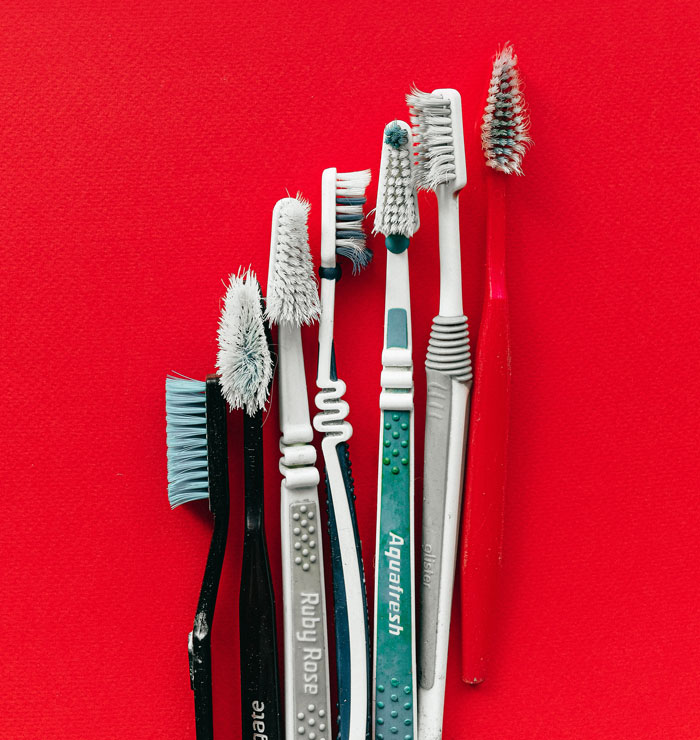 Hmm I keep old toothbrushes to use around the house for cleaning.
Hmm I keep old toothbrushes to use around the house for cleaning.
I have to buy Poundshop cheap toothbrushes for cleaning, the old electric toothbrushes heads are useless
One difficulty advocates for frugal living seem to encounter is the negative connotation some have with the word. Overall, 59% of Americans consider being frugal a positive thing, but about a quarter of them still view it in a negative light. Baby boomers, in particular, seem to have the least positive view of frugality. But despite what they may think about the word, American consumers as a whole have cut down on spending since the pandemic began. 36% of them say they’ve reduced their spending on non-essentials, 29% report spending less on essentials, and 20% say they’ve cut down on both.
 For me, I never buy anything full price anymore.
For me, I never buy anything full price anymore.
It may take a certain personality type to do this, but with a little preparation, and research, a deal or sale could always be found. This is especially true with online stores and the different apps, coupons, rebates, and etc you can easily find.
I believe the only time I buy stuff full price is when I need the item in a hurry.
I used to get lots of coupons mailed out, these local stores would also know to put that product in sale so people will also come in because they have a coupon for it, I also never buy the name brand unless it’s that product with a coupon
Though some may have found themselves adopting more frugal habits out of necessity during the pandemic, they have still been able to see positive effects from their lifestyle changes. 59% of respondents reported having increased time with their families, and 49% say they’ve gained more flexibility with their work. 24% even said they’ve received more enjoyment out of life, and 21% say their ability to travel has increased due to saving money. While it may have been hard at times to make dinner at home and fight the urge to grab takeout or watch a movie in their living rooms rather than taking a trip to the cinema, I’m sure the extra money in these Americans’ pockets will make it all worth it.
 If you must buy something on Amazon, ALWAYS check the Amazon Warehouse deals. Usually, they willl sell the same item in a dented box for 2/3 (or less) of the original price. It says *used* but it has never even been opened. This has saved me a ton of money over the years.
If you must buy something on Amazon, ALWAYS check the Amazon Warehouse deals. Usually, they willl sell the same item in a dented box for 2/3 (or less) of the original price. It says *used* but it has never even been opened. This has saved me a ton of money over the years.
 Avoid buying new what you can buy used, like furniture, clothing, appliances, cars, houses, tools, etc. Reduce, reuse, recycle, re-purpose what you must buy. Take public transportation, car pool, walk, bicycle. Good luck!
Avoid buying new what you can buy used, like furniture, clothing, appliances, cars, houses, tools, etc. Reduce, reuse, recycle, re-purpose what you must buy. Take public transportation, car pool, walk, bicycle. Good luck!
For the first two part, it makes a lot of sense if you just wanna save up and don't care much about how your house will look like. That being said, you don't wanna go too cheap and get complete garbage that can only be used for a short limited of time and then you have to fork up extra later. For the final part about public transport, as a Texas resident who lives in area with barely any public transport, it's really hard.
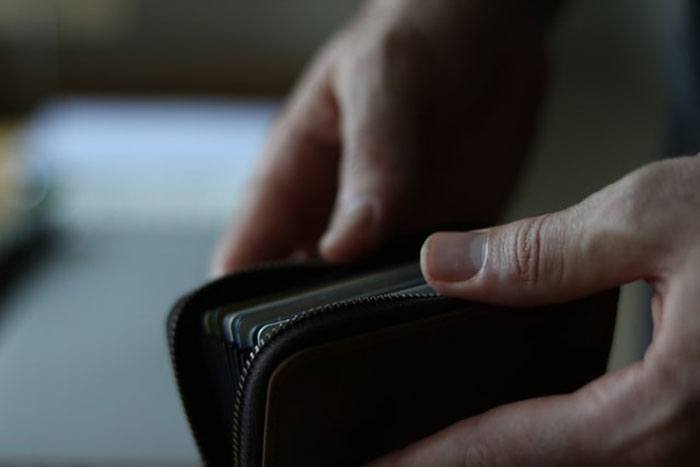 Do no spend week. It's an exercise in how much fun you can have without spending money. Use up the stuff in the freezer. Finish that craft project. Sort through the closet and purge.
Do no spend week. It's an exercise in how much fun you can have without spending money. Use up the stuff in the freezer. Finish that craft project. Sort through the closet and purge.
Being frugal has more benefits than simply finding a little extra money in your wallet, though. In fact, it’s not always about spending as little as possible. Sometimes it’s more important to invest in products and services that will last a long time, rather than opting for the cheapest option that inevitably will need to be replaced. For example, the Frugal Living subreddit has dozens of images of appliances and electronics with captions boasting that they’ve been in use for over a decade. It may seem scary to make investments at the time of purchase, but part of being frugal is thinking long term. If that pair of headphones comes from a trustworthy brand and will still be functioning in 10 years, it might be worth spending a little extra.
 Do not get a new phone/car when the ones I have work just fine.
Do not get a new phone/car when the ones I have work just fine.
driving an old car save fortunes on everything. Put money away every month in a savings account you won't touch for the new car. Eventually, it will cost too much to repair.
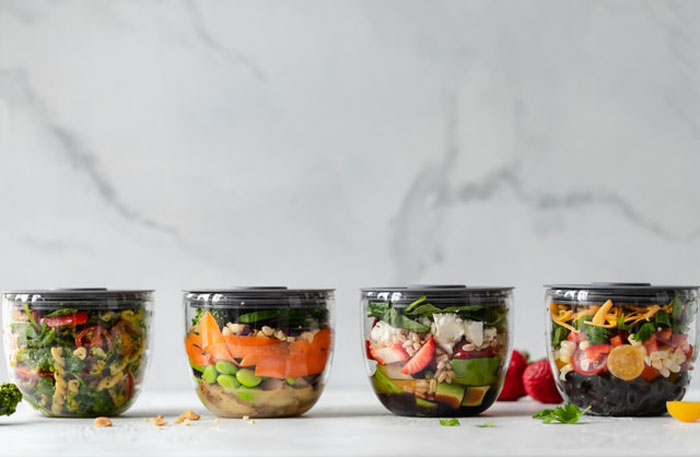 Paying off your credit cards should be number one priority considering the interest rates. Meal plans seem to help people save. When I see something I want to buy I usually try to wait a month to see if I still want it then; usually I don't. Saves me from a lot of unnecessary purchases.
Paying off your credit cards should be number one priority considering the interest rates. Meal plans seem to help people save. When I see something I want to buy I usually try to wait a month to see if I still want it then; usually I don't. Saves me from a lot of unnecessary purchases.
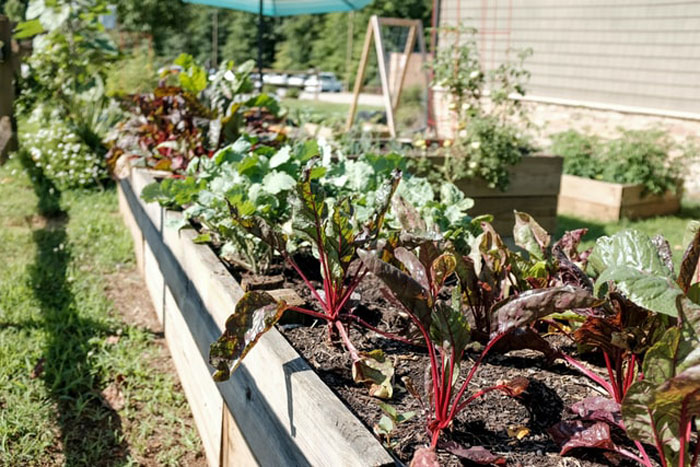 Plant a vegetable garden with only high yield veggies like green beans, okra, squash, zucchini , etc. It is only necessary to purchase the seeds one time because you can harvest them from the veggies. You can then make your own baby food, eat fresh veggies with your meals, and partake in a highly stress relieving activity. It is a win/win
Plant a vegetable garden with only high yield veggies like green beans, okra, squash, zucchini , etc. It is only necessary to purchase the seeds one time because you can harvest them from the veggies. You can then make your own baby food, eat fresh veggies with your meals, and partake in a highly stress relieving activity. It is a win/win
Better avoid doing this with things like squash and zucchini, cross pollination can occur here and can create inedible, even poisonous crosses.
Another factor those who are passionate about frugal living want others to consider is sustainability. Buying products that will stand the test of time is one way to do this, but there are plenty of other ways to reduce waste. Buying second hand furniture, appliances, vehicles and clothing is budget friendly and reduces waste. If something isn’t broken, there’s no need to replace it. But when something is broken and needs replaced, it can probably be replaced with something that’s been gently used. And when it comes to applying a mindset of frugality to your energy consumption, it’s a win win for your budget and the planet. Reducing electricity and power usage in your home will cost you less money and drain less resources from the Earth.
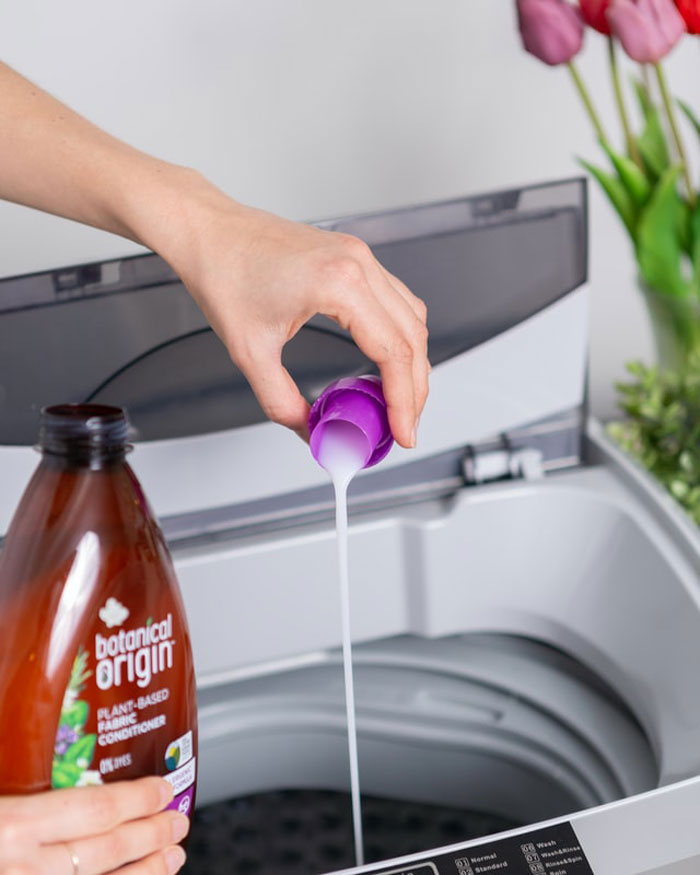 We've been in a similar situation (except we've got 2 kids under the age of 5), my best advice is to just use less. Read the back of the laundry detergent bottle/box and actually measure your dose. Then try using a little less. If you feel like your clothes aren't getting clean you can always go up again next time (keep a bucket of water by the washing machine and throw food stained kid's clothes in as soon as possible, don't let the food dry on and stains won't really be an issue). Same applies to shampoo, personal care etc. Try to minimize food waste, embrace your freezer for leftovers, even small amounts that can be used for other meals. A tiny bit of left over grated cheese can go in the baby food, or a sauce, or a sandwich. You can do lots of household cleaning with baking soda and vinegar, with the added bonus of being non-toxic for curious little ones. I found that we ended up eating healthier, less processed food and had the added benefit of producing less packaging etc so it feels better for the environment too. Good luck, you'll be setting your little dude up for good lifetime habits too!
We've been in a similar situation (except we've got 2 kids under the age of 5), my best advice is to just use less. Read the back of the laundry detergent bottle/box and actually measure your dose. Then try using a little less. If you feel like your clothes aren't getting clean you can always go up again next time (keep a bucket of water by the washing machine and throw food stained kid's clothes in as soon as possible, don't let the food dry on and stains won't really be an issue). Same applies to shampoo, personal care etc. Try to minimize food waste, embrace your freezer for leftovers, even small amounts that can be used for other meals. A tiny bit of left over grated cheese can go in the baby food, or a sauce, or a sandwich. You can do lots of household cleaning with baking soda and vinegar, with the added bonus of being non-toxic for curious little ones. I found that we ended up eating healthier, less processed food and had the added benefit of producing less packaging etc so it feels better for the environment too. Good luck, you'll be setting your little dude up for good lifetime habits too!
If you buy a good detergent you only need to use about half of what the directions say. They want you to use it up fast so you buy more..
 Don't have kids. Seriously. They're expensive.
Don't have kids. Seriously. They're expensive.
Couponing works. I used to be an extreme couponer & my hubby was shocked at all the stuff I was able to get free or dirt cheap.
Also, I use survey apps to earn gift cards. I've already earned $10 Walmart card & a $5 Amazon card.
Being frugal can also be fun because it promotes creativity and innovation. Shopping exclusively at thrift stores might take some time to adjust to if you’re used to retail chains and online shopping, but it can also be much more rewarding. The “hunt” is half the fun when it comes to thrifting, and you’re bound to find unique pieces that nobody else has. Whether you’re looking for a denim jacket, a sofa or some art for your walls, you can find a used version with plenty of character and likely for much less than you would have paid for a mass produced equivalent. Once you get used to the thrill of finding gems in second hand stores, seeing exactly what you need at a retail store just feels like cheating.
 Have a friend group that (generally) shares your frugal values. In my 20s, I had a lot of friends who spent money like they were Kardashians. Having a friend group who values free/inexpensive activities (as opposed to dropping $100 on an outing) is worth its weight in gold.
Have a friend group that (generally) shares your frugal values. In my 20s, I had a lot of friends who spent money like they were Kardashians. Having a friend group who values free/inexpensive activities (as opposed to dropping $100 on an outing) is worth its weight in gold.
Also if you don't eat/drink much at restaurants, don't split the check evenly-- pay your fair share.
I learned the "don't split the check" lesson the hard way. A bunch of us would go out to eat, one would order whatever she wanted (including booze) and "forget" her wallet, or suggest we split the check. The easiest way for me to shake myself of the freeloader was to tell the wait staff that I needed a sep check and that I wanted water to drink. It worked. Taught my kids that lesson too.
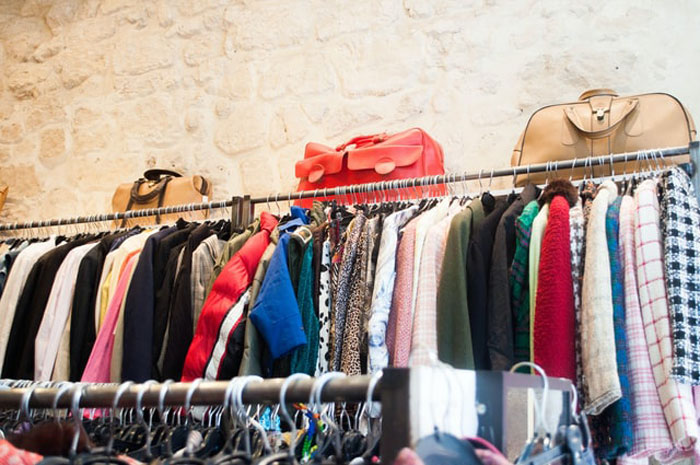 Buy your clothes from thrift stores and Savers.
Buy your clothes from thrift stores and Savers.
You have to invest a bit of time into this (try to work a few stores into your routine) and go frequently. I scan through racks quickly and ignore most stuff but focus on stuff that looks like it has never been worn / has original tags still on (you'd be surprised - this can be quite common).
But don't buy junk just because it is cheap, buy only what you love and need, and buy only stuff that fits perfectly.
I've also found nice coffee cups (original labels still stuck to the bottom) at Savers too. I also buy DVDs at thrift stores they can be very cheap.
if you use the thrift store in the swanky part of town, you will sometimes find designer label stuff for 15% of the new prices
 Garage sale. Everything in my house is second hand. Except my mattress. Ive furnished my whole house with great stuff for under $200.
Garage sale. Everything in my house is second hand. Except my mattress. Ive furnished my whole house with great stuff for under $200.
The creativity used for frugal shopping can be applied to our lives in the kitchen as well. The Frugal Living subreddit is home to countless cooking tips to reduce waste and save money. Members share their personal favorite recipes for making kitchen staples like salad dressings and oat milk at home to avoid buying plastic containers. Even cleaning supplies can be made at home using simple ingredients like vinegar and baking soda. Members of Frugal Living also share tips for easy cooking substitutes to reduce costs or turn meals vegan by subbing mayo for eggs or applesauce for butter. Buying whole foods to create homemade sauces, dips, breads and desserts is another great tactic to save money and encourage innovation in the kitchen.
 This saved us over $12,000:
This saved us over $12,000:
Look into community college extension courses. They offer inexpensive classes in life skills that are useful to anyone (cooking, baking) and if you're a homeowner especially those skills can add up to significant savings.
We took an electrician's course and then sat for the state certification exam. Then when it came time to replace our aging furnace and central a/c we installed heat pumps. When it comes time to sell this place we can say all the work was done by certified electricians.
A contractor had quoted $16,000 for similar work. Our cost: $4000. The contractor tried to talk us into a payment plan so the actual savings was upwards of $20,000.
Extra LPT whether or not you're a homeowner: whenever someone tries to get you into a plan with "easy monthly payments" it's a terrible deal. Their goal is to drag out the loan and squeeze you for interest.
In Australia it’s actually illegal to perform electrical work except by fully qualified electricians who have to complete years of training and study. Electrical work is dangerous and poor work could easily set a fire or shock someone.
 Buy quality stuff. They last longer than cheap stuff.
Buy quality stuff. They last longer than cheap stuff.
This makes sense, but not always possible when you don't have enough money to buy quality stuff.
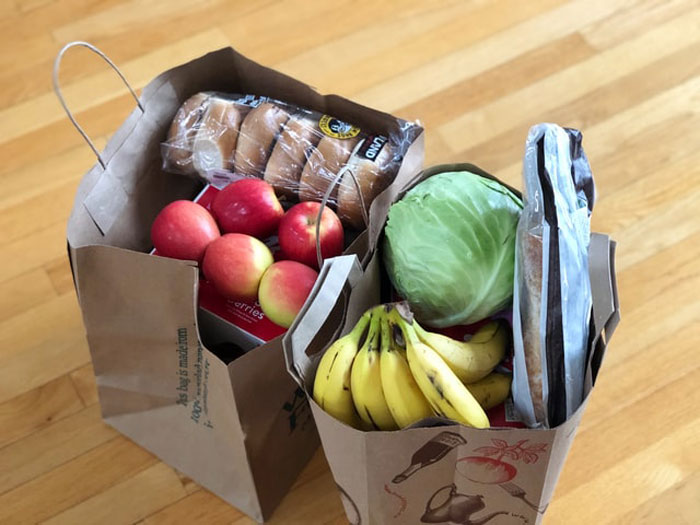 I order my groceries online and it really cuts back on impulse purchases. This ties in with meal planning and cooking at home.
I order my groceries online and it really cuts back on impulse purchases. This ties in with meal planning and cooking at home.
Find someone with a baby 6-12 months older than yours, 1 year is a good gap, and see if you can have/buy all their usesdclothing. You'll want to find someone with a close birth month so the seasonal stuff matches up.
The internet now has dozens of blogs dedicated to frugal living, one of the most popular being Frugalwoods, which is run by two “ex-urban rookie homesteaders finding contentment on 66 acres in rural central Vermont”. In one of their blog posts, Liz, aka Mrs. Frugalwoods, details “why frugality is the best thing that’s ever happened to [her]”. She notes that it’s not always popular to live frugally when it’s not out of necessity, but it can help you identify your true priorities. “When I first began to cut things from my life, I thought of each cut as a loss. As something I didn’t get to do anymore,” Liz shares. “Now, I see them all as things I don’t have to do anymore. Things I don’t have to waste time, energy, and money on. Things I’ve freed myself from needing and from doing.”
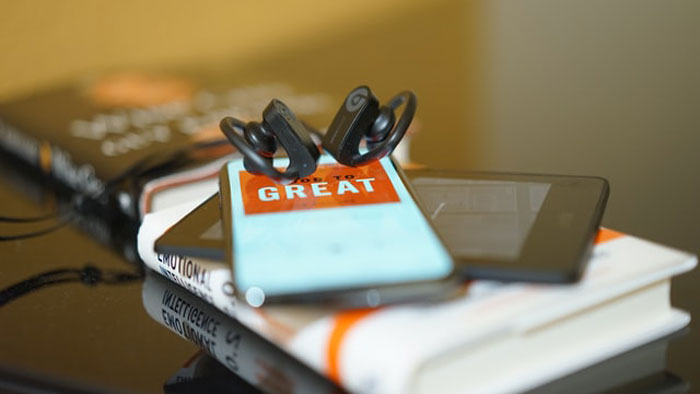 Try free entertainment. In many cities, libraries have passes for check out and/or free days at museums. Audiobooks, videos/dvds/streaming, ebooks, magazines are all available for free.
Try free entertainment. In many cities, libraries have passes for check out and/or free days at museums. Audiobooks, videos/dvds/streaming, ebooks, magazines are all available for free.
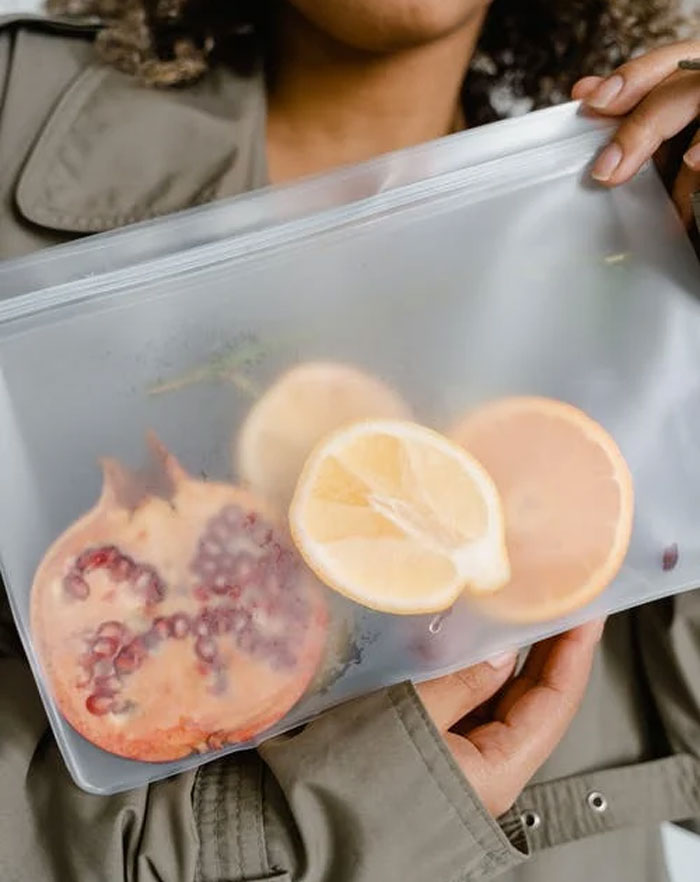 I wash ziplock plastic bags and reuse them. I don't do this for ones that store raw meat of course but they can last quite awhile. I tried those material reusable ones but my kids lose them.
I wash ziplock plastic bags and reuse them. I don't do this for ones that store raw meat of course but they can last quite awhile. I tried those material reusable ones but my kids lose them.
We also reuse food containers for the kids lunch so when they lose those I don't mind.
We reserve movies from the library for free and have taught our kids to love read and they do it all of the time. We go to the library at least once a week.
We don't spend our money on stupid kid c**p. My kids receives gifts for birthdays and holidays. Recently I went to a store with a friend and she always lets her kids pick things out of the 1-5 dollar spot area. Over time that will add up. One tripe could cost her an extra ten dollars easy.
Like wise I don't buy myself everything I want.
I own a capsule wardrobe everything pretty much goes with everything else. I probably have under 30 items of clothing for the summer season for all occasions.
We drive older cars but keep up the maintenance.
We both have work cell phones. I know this isn't an option for everyone but as long as it's allowed use your work phone for your personal phone.
Meal plan for breakfast lunch dinner and snacks. Buy food on sale that is in season.
Work alternating shifts to avoid paying for childcare. It sucks but for awhile we had to with our daughter and it saved us so much money.
Do not reuse plastic bags unless you want even more microplastics in your food....
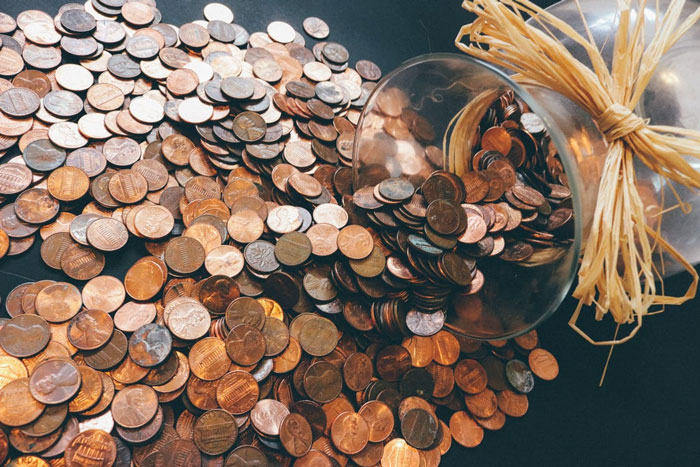 Get a returnable cost hobby. My son and I started coin roll hunting. You get rolled coins at the bank and go through them looking for any that have value. Silver coins (in US these are pre 1964 dimes and quarters) have around a 5x of face value. At worst, you find nothing and get your cash back for them at the bank... but get to have the thrill of the chase for no cost.
Get a returnable cost hobby. My son and I started coin roll hunting. You get rolled coins at the bank and go through them looking for any that have value. Silver coins (in US these are pre 1964 dimes and quarters) have around a 5x of face value. At worst, you find nothing and get your cash back for them at the bank... but get to have the thrill of the chase for no cost.
Another hack that just might work in the US, but not in Europe. As Euro coins have not been minted before 1999 and have never been made of precious metals, there are very few collector's coins. Also, unfortunately many banks here charge a large fee for getting rolled coins by now (and even heavier fees for changing them back), so any gains would be voided.
Liz goes on to mention that frugal living also “fosters lowered stress, increased peace and greater simplicity”. She provides the example of how she used to feel pressure to wear makeup despite knowing that it caused her anguish, cost lots of money and added time to her daily routine. But one day, she just decided that it was unnecessary, so she cut it out. Liz writes that it was “so much easier for me to simply say no”. “To simply not wear it anymore. To not buy it, to not need it, to not put it on. To simplify and to do without is to create a level of ease and calm.”
On that same note, Liz mentions that frugality has increased her happiness. She explains that “treating herself” less frequently allows those treats to be more exciting, and over time she’s taught her how to embrace life’s simple pleasures. “Frugality… trains our brain not to require those consumer highs. We’re happier with less and we enter a state of contentment, as opposed to a state of constantly craving.”
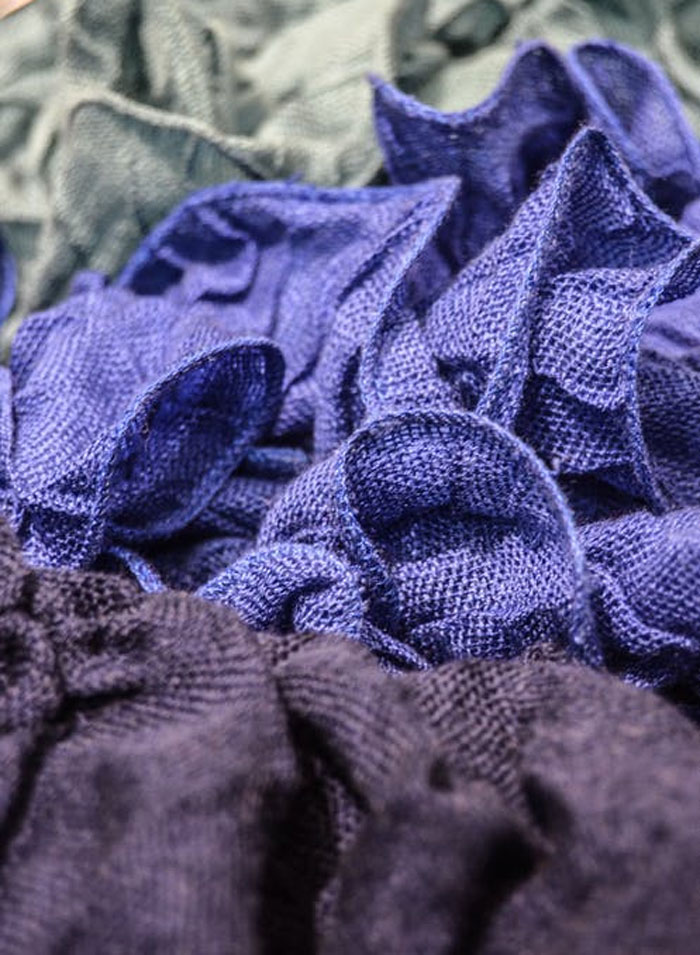 Making your own cleaners, and using old cut-up shirts/bar cloths instead of paper towels. You'd be surprised how much you spend on cleaning supplies from the store. Vinegar is your best friend.
Making your own cleaners, and using old cut-up shirts/bar cloths instead of paper towels. You'd be surprised how much you spend on cleaning supplies from the store. Vinegar is your best friend.
I also save a TON making my own laundry detergent. Took me a few times to nail it "just right", but this has been a huge savings.
Good ol' plain white vinegar cleans just about everything and doesn't leave streaks on mirrors or windows etc. No clue why people on here said it attracts fruit flies and he smell goes away pretty quick so IDK where those comments came from. Adding that a mix of ~ 15% dawn dish soap (the blue kind specifically for idk what reason,) ~ 25% ammonia, and ~ 60% water will get stains out of nearly anything. Had an elderly neighbor that taught me that trick and even gave me a spray bottle that she had marked the right levels off on for me. I miss her so much.
 Repurposing. Take big empty containers from powdered coffee creamers or instant coffee- and reuse them with other products.
Repurposing. Take big empty containers from powdered coffee creamers or instant coffee- and reuse them with other products.
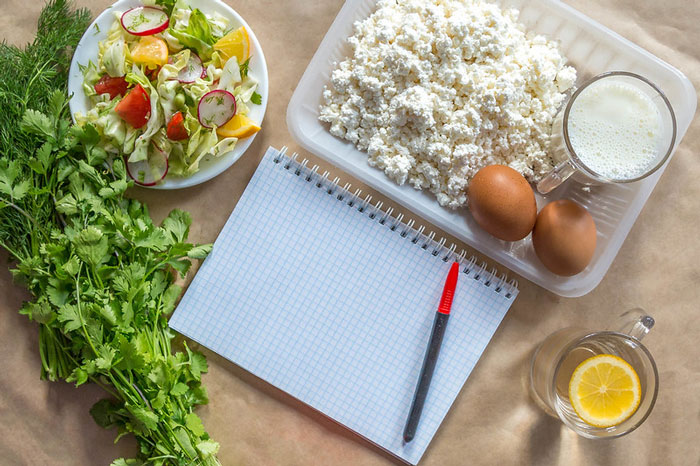 Buy non perishable items in bulk and on sale if possible. Also do this for things I use all the time like flour/rice
Buy non perishable items in bulk and on sale if possible. Also do this for things I use all the time like flour/rice
Plan meals ahead of time. Any fresh ingredients that aren't used up have another meal planned to use the. For example, I use half a head of cabbage in my stir fry so I plan another meal that uses the other half or I will forget to use it.
Replace light bulbs in low traffic areas with motion sensing light bulbs. I never worry if the utility room light was left on and it's wonderful.
Even though the nest is empty and its just me, I still make a huge sumday dinner. I buy whatever looks good, thats on sale. Pot roast, a fat, whole chicken, pork loin and such with all the trimmings. Then portion out the leftovers into the freezer, either for straight up left over plates or use in other (planned) meals. I ge a lot of bang for the buck and the best part? I eat like a king but only have to cook a few days a week. A few taps on the microwave or air fryer and Im ready to sit down and stuff my face. My grocery bill runs about $175 a month. Less than $2 a meal.
Although being thrifty may seem a bit subversive in our consumerist society, it can yield many personal benefits and help us be more gentle on the planet. Enjoy reading the rest of these frugal living tips; maybe you're even becoming inspired to grow your own garden or start shopping second hand. Don't forget to upvote your favorite recommendations, then let us know in the comments how you like to embrace frugality. You don't need to start brewing your own kombucha tomorrow, but if you're cutting back a little here and there, the Earth and your wallet will thank you.
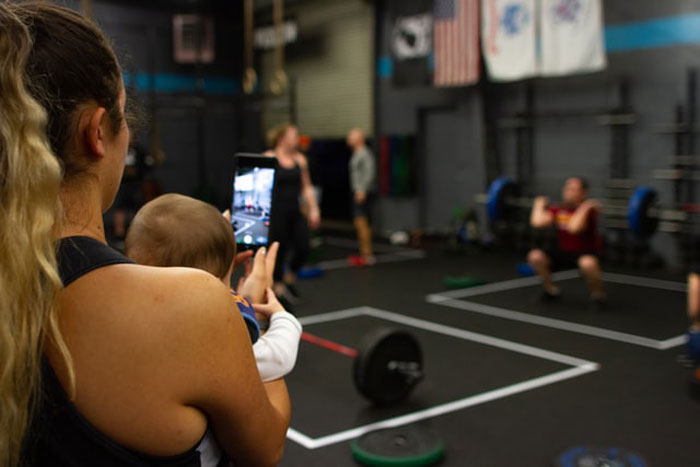 I have a family membership to a family gym + indoor pool. My whole family of 6 exercises / swims there usually 3 times a week for $90 a month. Besides having something healthily to do outside the house, it also pays for itself by having us shower there instead of the house on the days we go. Our water is very expensive.
I have a family membership to a family gym + indoor pool. My whole family of 6 exercises / swims there usually 3 times a week for $90 a month. Besides having something healthily to do outside the house, it also pays for itself by having us shower there instead of the house on the days we go. Our water is very expensive.
Those memberships do pay off when you have a big family. You may not even have to be a family, per se, to take advantage of those family memberships, now that I'm thinking.
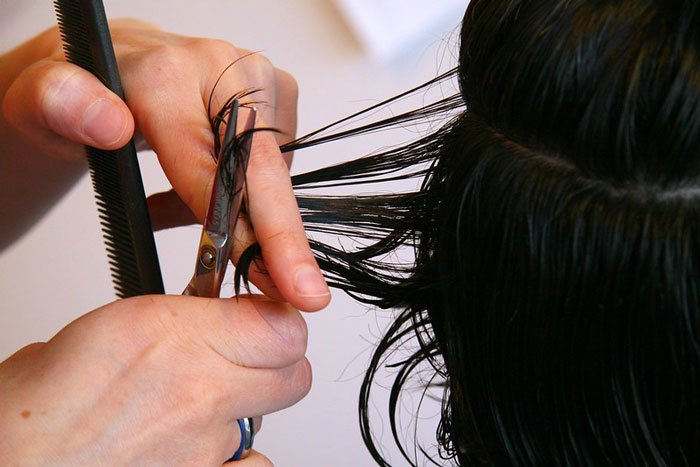 Cut your own hair. I've saved, at this point, thousands of dollars and my hair looks much better than the chain barber customers.
Cut your own hair. I've saved, at this point, thousands of dollars and my hair looks much better than the chain barber customers.
 Buy from 99 cents store or something similar. I buy food, hygiene items, cleaners, etc there. Somethings aren't actually cheaper but you just need to price check with your other local stores.
Buy from 99 cents store or something similar. I buy food, hygiene items, cleaners, etc there. Somethings aren't actually cheaper but you just need to price check with your other local stores.
Remember folks: you all have a free, global library full of books, games, and educational materials. All you have to do is learn how to download them and not get viruses.
A couple of things that work for me: 1) Check out tool and equipment rentals near you. For many projects, you can rent the tools you need, even smaller hand tools. You can also try borrowing from neighbors. 2) At the beginning of heating and cooling season, set your thermostat for what's comfortable. But then every few days set it one degree lower in winter (or warmer in summer). As you acclimate to the change in seasons, you'll feel comfortable with cooler temps in winter and warmer in summer. Keep doing this till you hit the limit of what's acceptable to you. Taking walks every day also helps with acclimating to seasonal changes.
if you have south-facing windows, put up shades to block them in the summer. Similarly, if your HVAC compressor is on the south side of the house, lean large plywood boards up over them so the sun does not heat the cooling fins. Just don't block the airflow completely.
Load More Replies...This post is not for people who NEED to save money, but rather, WANT to. There is a HUGE disparity between the haves and the have-nots. It drives me bonkers to see folks posting about ways to save money, when they actually have money in the bank…
Especially when you are working 2 jobs and don't have unlimited free time to make some of this happen...
Load More Replies...Remember folks: you all have a free, global library full of books, games, and educational materials. All you have to do is learn how to download them and not get viruses.
A couple of things that work for me: 1) Check out tool and equipment rentals near you. For many projects, you can rent the tools you need, even smaller hand tools. You can also try borrowing from neighbors. 2) At the beginning of heating and cooling season, set your thermostat for what's comfortable. But then every few days set it one degree lower in winter (or warmer in summer). As you acclimate to the change in seasons, you'll feel comfortable with cooler temps in winter and warmer in summer. Keep doing this till you hit the limit of what's acceptable to you. Taking walks every day also helps with acclimating to seasonal changes.
if you have south-facing windows, put up shades to block them in the summer. Similarly, if your HVAC compressor is on the south side of the house, lean large plywood boards up over them so the sun does not heat the cooling fins. Just don't block the airflow completely.
Load More Replies...This post is not for people who NEED to save money, but rather, WANT to. There is a HUGE disparity between the haves and the have-nots. It drives me bonkers to see folks posting about ways to save money, when they actually have money in the bank…
Especially when you are working 2 jobs and don't have unlimited free time to make some of this happen...
Load More Replies...
 Dark Mode
Dark Mode  No fees, cancel anytime
No fees, cancel anytime 







